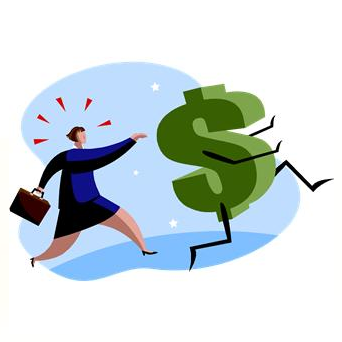eDiscovery Daily Blog
When is a Billion Dollars Not Enough? – eDiscovery Case Law

When it’s Apple v. Samsung, of course!
According to the Huffington Post, Apple Inc. requested a court order for a permanent U.S. sales ban on Samsung Electronics products found to have violated its patents along with additional damages of $707 million on top of the $1.05 billion dollar verdict won by Apple last month, already one of the largest intellectual-property awards on record.
Back in August, a jury of nine found that Samsung infringed all but one of the seven patents at issue and found all seven of Apple's patents valid – despite Samsung's attempts to have them thrown out. They also determined that Apple didn't violate any of the five patents Samsung asserted in the case. Apple had been requesting $2.5 billion in damages. Trial Judge Lucy Koh could still also triple the damage award because the jury determined Samsung had acted willfully.
Interviewed after the trial, some of the jurors cited video testimony from Samsung executives and internal emails as key to the verdict, which was returned after just 22 hours of deliberation, despite the fact that the verdict form contained as many as 700 points the jury (including charges brought against different subsidiaries of the two companies addressing multiple patents and numerous products).
Role of Adverse Inference Sanction
As noted on this blog last month, Samsung received an adverse inference instruction from California Magistrate Judge Paul S. Grewal just prior to the start of trial as failure to turn “off” the auto-delete function in Samsung’s proprietary “mySingle” email system resulted in spoliation of evidence as potentially responsive emails were deleted after the duty to preserve began. As a result, Judge Grewal ordered instructions to the jury to indicate that Samsung had failed to preserve evidence and that evidence could be presumed relevant and favorable to Apple. However, Judge Lucy Koh decided to modify the “adverse inference” verdict issued for the jury to include instructions that Apple had also failed to preserve evidence. Therefore, it appears as though the adverse inference instruction was neutralized and did not have a significant impact in the verdict; evidently, enough damning evidence was discovered that doomed Samsung in this case.
Friday's Filings
In a motion filed on Friday, Apple sought approximately $400 million additional in damages for design infringement by Samsung; approximately $135 million for willful infringement of its utility patents; approximately $121 million in supplemental damages based on Samsung's product sales not covered in the jury's deliberation; and approximately $50 million of prejudgment interest on damages through December 31 – total of $707 million requested. Apple also requested an injunction to cover "any of the infringing products or any other product with a feature or features not more than colorably different from any of the infringing feature or features in any of the Infringing Products."
Not surprisingly, Samsung submitted a filing on Friday, requesting a new trial “enabling adequate time and even-handed treatment of the parties”, stating “The Court's constraints on trial time, witnesses and exhibits were unprecedented for a patent case of this complexity and magnitude, and prevented Samsung from presenting a full and fair case in response to Apple's many claims.”
So, what do you think? Will Apple get more money? Will Samsung get a new trial? If so, will there be more discovery sanctions? Please share any comments you might have or if you’d like to know more about a particular topic.
Disclaimer: The views represented herein are exclusively the views of the author, and do not necessarily represent the views held by CloudNine Discovery. eDiscoveryDaily is made available by CloudNine Discovery solely for educational purposes to provide general information about general eDiscovery principles and not to provide specific legal advice applicable to any particular circumstance. eDiscoveryDaily should not be used as a substitute for competent legal advice from a lawyer you have retained and who has agreed to represent you.
